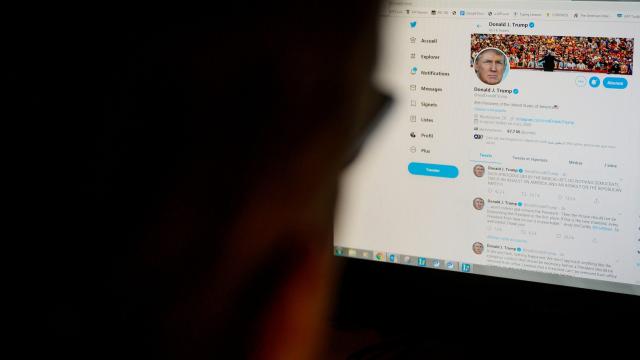The bots are taking over, man. Researchers have found that bots are largely fuelling climate denial propaganda on Twitter.
In a draft research paper, scientists at Brown University found that a quarter of all tweets about climate change come from bots on an average day. That’s especially the case when it comes to climate denial.
The paper”which hasn’t yet been peer-reviewed or published yet”zoomed in on May 28 to June 31, 2017. That covers the period immediately preceding and after U.S. President Donald Trump’s announcement he was going to withdraw the U.S. from the Paris Agreement on June 1. All told, the analysis turned up some 6.5 million tweets using terms such as “climate change,” “global warming,” and “Paris Climate Agreement.” To narrow their analysis of who was real and who wasn’t, the researchers chose a random sample of roughly 167,000 tweets to analyse.
To identify media bots”automated accounts that mimic real-life people to fool readers or sway public opinion”the researchers Botometer, a university-led effort that rates social media accounts for authenticity. Turns out that bots weren’t posting as much around the Paris Agreement announcement because more actual people had climate change on the mind. But among the content that the bots were most interested in amplifying was climate denial.
You know, tweets promoting fake science claiming that the climate crisis isn’t real or research the fossil fuel industry has funded to help keep its business growing despite the risks to humanity. Bots, on average, had a 0.5 per cent greater chance of tweeting about denialist research. And overall, bots accounted for a quarter of all climate tweets, suggesting these fake accounts are a big part of #climatetwitter. And it’s concerning that climate denial, in particular, is more likely to be pushed by Twitter bots.
“One of the most dangerous elements of misinformation is its ability to cancel out accurate information,” John Cook, a researcher at the Centre for Climate Change Communication at George Mason University who was not involved in the study, wrote in an email to Earther. “When people are exposed to both facts and myths, if they have no way of resolving the conflict between the two, then they disengage and the two cancel each other out. This is what makes misinformation from bots so dangerous. Misinforming tweets don’t need to be especially convincing or successfully persuade people”its mere existence is all that’s needed to reduce the effectiveness of accurate information.”
These days, misinformation is coming from every direction, government. Unfortunately, plenty of people out there turn to social media to get their information.
And a Twitter bot could very well fool anyone who might not have the surest grasp of climate science or spotting misinformation in general. More and more of the public are becoming concerned with the climate crisis”six in 10 are alarmed or concerned“but misinformation can keep the others in the dark. And that plays into the hands of fossil fuel interests as well as Republicans, who still have a long way to go before they take the climate crisis as seriously as they should.
